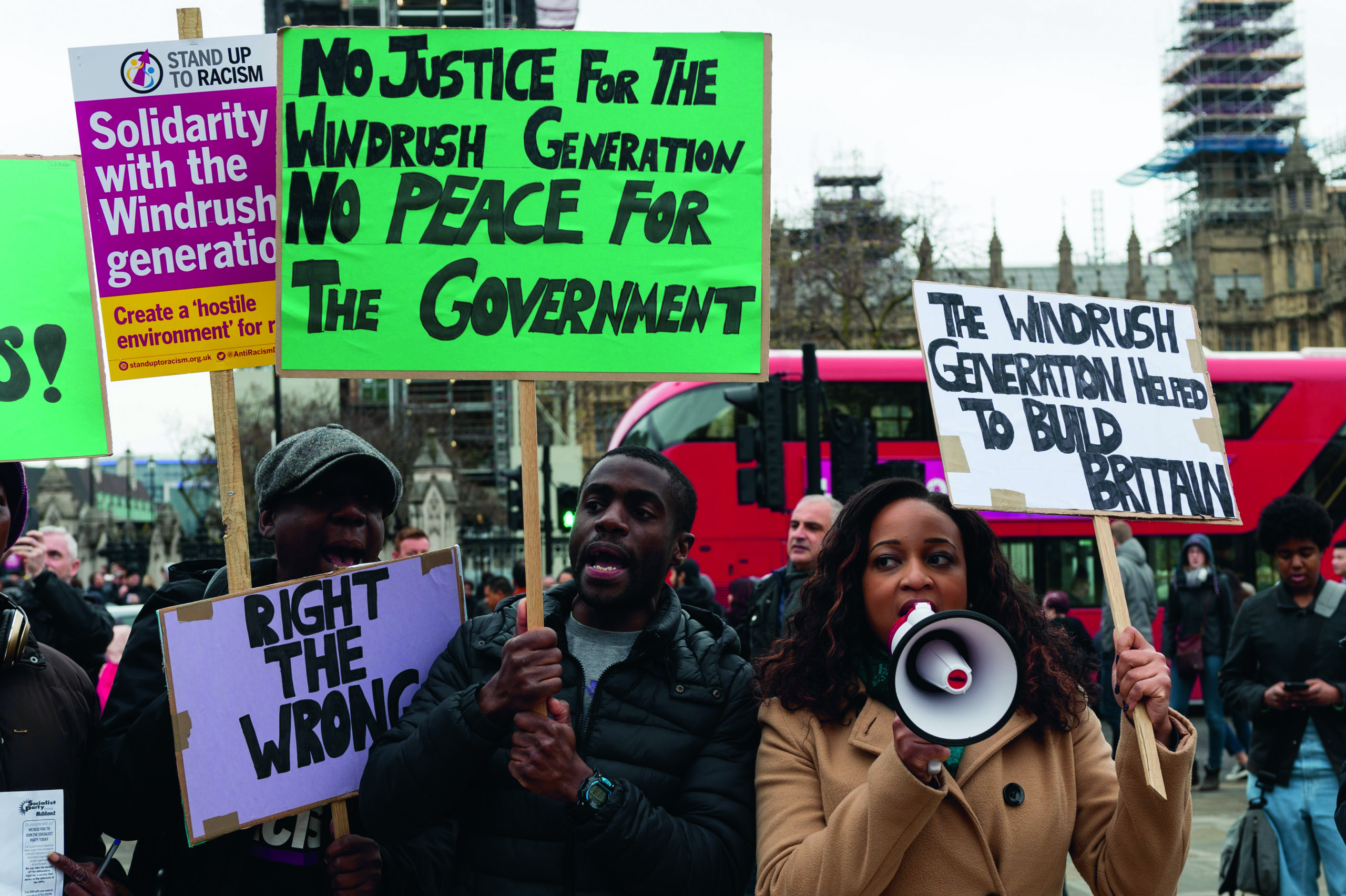The government responded by introducing a Windrush taskforce to fast-track applications for citizenship, suspended deportation flights, established a ‘lessons learned’ review and have now launched a compensation scheme.
So after 12 months what would be my assessment of progress? Well, more than 4,000 people have obtained citizenship but over 500 cases have been refused, mainly those with minor convictions.
There are many thousands of people who have still not come forward to resolve their status as there remains a lack of trust with the Home Office and public bodies who implemented the hostile environment policy and procedures.
The voices of the victims of the scandal also have their own perspective, reflecting on the situation 12 months on.
Michael Braithwaite moved to Britain in 1961. After working for over 15 years as a teaching assistant in Islington he lost his job as a result of the scandal. Twelve months on he is still traumatised, but he is now sharing his experiences through media interviews and attending community and trade union events to campaign for justice.
He says: “Over the last two years my life has been turned upside-down. The mental stress and turmoil caused me ill health and still impacts on my daily life.
Advertising helps fund Big Issue’s mission to end poverty
“The government compensation scheme has not been fairly documented, it was constructed behind closed doors, no public input and no one to represent the Windrush victims.”
Ewaldo Romeo came from Antigua as a four-year-old in 1959. Although he did not lose his job, the scandal had a major impact on his family life. His daughter Rachelle found it especially tough, and she is now using her art to visualise the impact of the hostile environment.
Elwaldo is using his experiences to become the first chair of Windrush Action, a campaign group that was formed nine months ago, and represents over 300 victims of the Windrush scandal who are fighting for a fair and decent compensation scheme.
Stephanie O‘Connor and her siblings are still coming to terms with the death of their mother Sarah O’Connor. At the age of 57 she died of hypertension in September last year as a result of the stress involved in losing her job and facing bankruptcy. Sarah came to Britain in 1967 as a six-year-old and worked for most of her life before losing her job in 2017.
Stephanie says: “The Windrush scandal impacted on my mum Sarah, both on her health and emotionally. Before the scandal was exposed, she felt on her own and like she had done something wrong, despite contributing to the country for many years.
“For my mum the compensation scheme has come too late and I’m so disappointed that it is still taking this long for people to get compensated fairly for everything they have been through.
Advertising helps fund Big Issue’s mission to end poverty
“This scandal has ruined people’s lives, and in today’s world it is terrible that we have allowed that to happen to this extent.”
One of the big issues over the last 12 months has been the use of deportation flights as a form of reparation back to the Caribbean. Although flights were suspended for 10 months the Home Office controversially resumed them again in February.
The campaign group Movement for Justice and BME Lawyers for Justice played an important role in forcing the Home Office to reduce the numbers that eventually got deported. I was in Jamaica in March and some deportees shared their concerns with me.
They all have no money, are dependent on family and friends and are all experiencing anxiety, depression and anger.
Most of them had caring responsibilities as fathers or supporting elderly parents with health problems such as dementia. Some of their children are not aware that they have been deported and may not see them again.
After the recent case of a deportee who was murdered, they are all fearful for their lives and mindful of their personal safety.
Advertising helps fund Big Issue’s mission to end poverty
All of them stay indoors most of the time. One person described it like being back in prison.
To make matters worse, not only were people deported to Jamaica without any plans for support or rehabilitation, the charity supporting deportees in Kingston, the National Organisation for Deported Migrants, had all their funding cut by the Home Office.
Back in the UK I shared this news with several media outlets and BuzzFeed took on the story. Last month after another successful campaign, the Home Office reversed the funding cuts to the charity.
What is clear 12 months on from the scandal is that we still need to campaign for restorative justice for the victims of the Windrush scandal, ending the hostile environment.
Even more work is needed to establish the Windrush generation as part of British history, with changes in the national curriculum, permanent monuments, exhibitions, stamps and banknotes. This will ensure that the Windrush generation are acknowledged to have shaped and played a major role in Britain since the docking of the Empire Windrush on June 22 1948.
patrickvernon.org.uk| @ppvernon
Advertising helps fund Big Issue’s mission to end poverty










